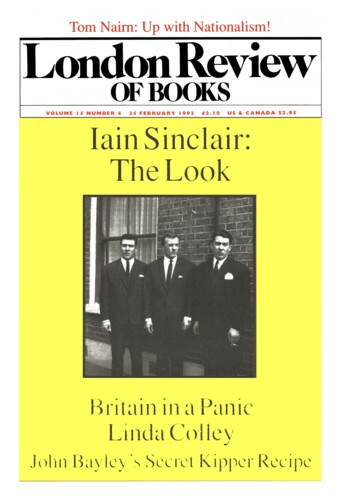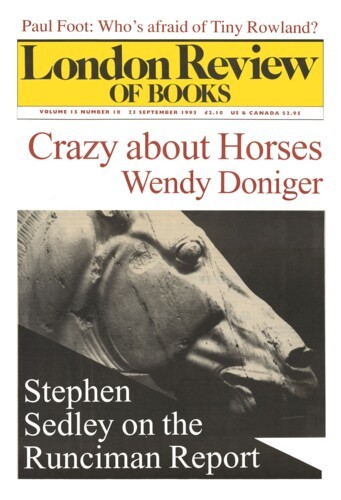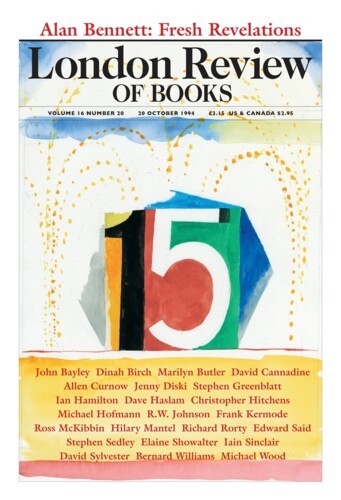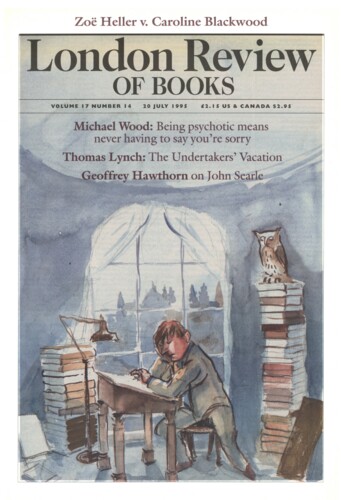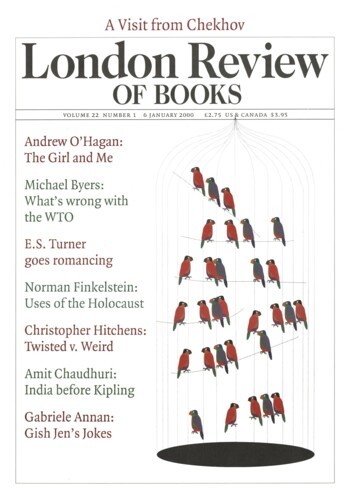Diary: Post-Madchester
Dave Haslam, 25 February 1993
Friedrich Engels described the scene in the centre of Manchester on a Saturday night: ‘Intemperance may be seen in all its brutality. I have rarely come out of Manchester on such an evening without meeting numbers of people staggering and seeing others lying in the gutter.’ The habits of the citizens of Manchester are unchanged. Going out is still a high priority; so is intemperance. The night life in the city has even become a tourist attraction. A few years ago you’d see coaches from Stoke, Leeds and London lining the streets outside the Hacienda, a cavernous old warehouse and Manchester’s most famous nightclub. Working as a DJ first at the Hacienda, then at the Boardwalk, I’ve met Americans, Germans and Australians drawn there by Manchester’s reputation.
